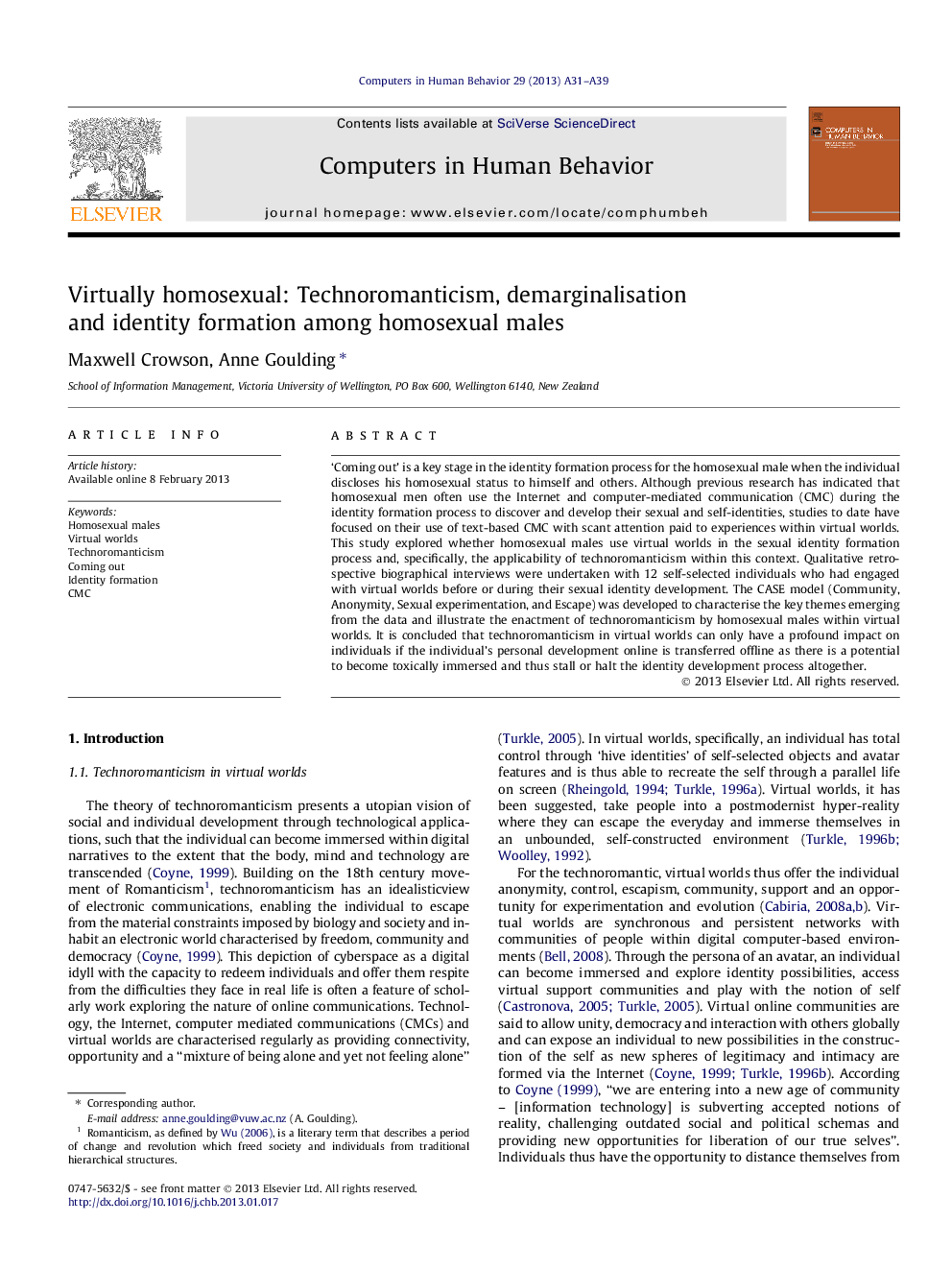| Article ID | Journal | Published Year | Pages | File Type |
|---|---|---|---|---|
| 350893 | Computers in Human Behavior | 2013 | 9 Pages |
‘Coming out’ is a key stage in the identity formation process for the homosexual male when the individual discloses his homosexual status to himself and others. Although previous research has indicated that homosexual men often use the Internet and computer-mediated communication (CMC) during the identity formation process to discover and develop their sexual and self-identities, studies to date have focused on their use of text-based CMC with scant attention paid to experiences within virtual worlds. This study explored whether homosexual males use virtual worlds in the sexual identity formation process and, specifically, the applicability of technoromanticism within this context. Qualitative retrospective biographical interviews were undertaken with 12 self-selected individuals who had engaged with virtual worlds before or during their sexual identity development. The CASE model (Community, Anonymity, Sexual experimentation, and Escape) was developed to characterise the key themes emerging from the data and illustrate the enactment of technoromanticism by homosexual males within virtual worlds. It is concluded that technoromanticism in virtual worlds can only have a profound impact on individuals if the individual’s personal development online is transferred offline as there is a potential to become toxically immersed and thus stall or halt the identity development process altogether.
► We explore homosexual males’ use of virtual worlds. ► We analyse the impact of their use of virtual worlds on their identity formation. ► We develop the CASE model to characterise their engagement in virtual worlds. ► We explore the validity of technoromantic theory within this context.
